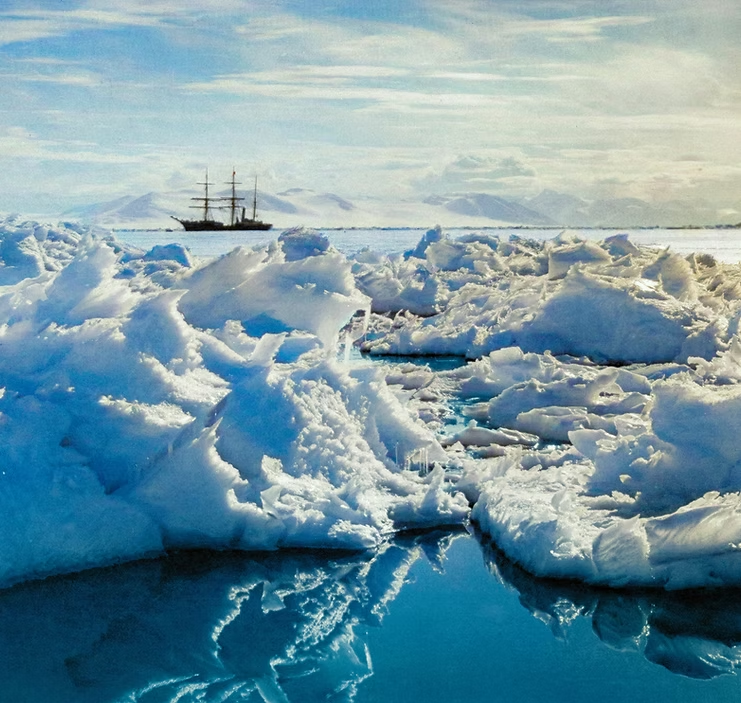
McMurdo Station: Visitor’s Guide to Antarctica’s Largest Research Base
Explore McMurdo Station
Exploring McMurdo Station: Antarctica’s Premier Research Hub
McMurdo Station: The Largest Research Hub in Antarctica
McMurdo Station is the largest scientific research station in Antarctica, serving as the main U.S. Antarctic Program hub. Located on Ross Island, near the Ross Ice Shelf, McMurdo is a gateway to Antarctic exploration, supporting scientists, military personnel, and logistical teams. Although not a typical tourist destination, visitors on specialized Antarctic expeditions may have the rare opportunity to explore this fascinating, isolated outpost at the bottom of the world.
Frequently Asked Questions: McMurdo Station
McMurdo Station operates year-round, but visits are limited to the Antarctic summer:
- October to February (Summer): Warmer temperatures (-20°F to 30°F), long daylight hours, and peak research activity.
- March to September (Winter): Dark, extreme cold (-50°F or lower), station closed to visitors.
- Observation Hill (Ob Hill) – A scenic viewpoint overlooking McMurdo Sound and Mount Erebus.
- Discovery Hut – Built by explorer Robert Falcon Scott in 1902, one of the oldest Antarctic structures.
- Ross Ice Shelf – One of the largest floating ice masses in the world.
- Mount Erebus – Earth’s southernmost active volcano, sometimes visible from the station.
- Scott Base – A nearby New Zealand research station with vibrant green buildings.
- Pressure Ridges – Unique ice formations created by the movement of the Ross Ice Shelf.
- McMurdo Dry Valleys – A rare ice-free region in Antarctica, often compared to Mars.
- Ice Runway & Pegasus Field – Landing zones for research aircraft arriving from New Zealand.
McMurdo Station has no native cuisine, but meals are provided at the main galley (dining hall):
- Hearty comfort food – Designed for extreme cold conditions, including soups, pasta, and stews.
- Fresh fruits & vegetables – Occasionally flown in but limited in availability.
- Homemade baked goods – A highlight of station life, especially during the winter.
- McMurdo Coffee House & Southern Exposure Bar – Social spots where staff unwind.
- S. Military Aircraft: The main way to reach McMurdo is via LC-130 Hercules or Boeing C-17 flights from Christchurch, New Zealand.
- Icebreaker Ships: Used for cargo resupply missions via McMurdo Sound.
- Snowmobiles & PistenBullys: Common for local transportation on snow and ice.
- Hiking & Walking: Many areas around the station are accessible on foot, weather permitting.
- No visa is required for Antarctica itself, but travelers must comply with regulations from their departure country (New Zealand or Chile).
- All visitors must obtain special permits through the National Science Foundation (NSF) or an approved tour operator.
- Your passport must be valid for at least six months beyond your travel date.
- Travel insurance is mandatory, covering medical evacuation.
- No official currency is used at McMurdo Station.
- S. Dollars (USD) are accepted for small purchases at the McMurdo Store.
- Credit cards are accepted in the station store and at bars, but there are no ATMs.
- English is the primary language spoken at McMurdo Station.
- Some interactions with New Zealand’s Scott Base personnel may involve English with Kiwi slang.
- No native human population exists in Antarctica.
- Respect station rules and protocols—McMurdo is a working research station, not a tourist attraction.
- Follow environmental regulations—no littering, and avoid disturbing wildlife.
- Keep a safe distance from wildlife, including seals and penguins.
- Alcohol consumption is regulated—drinking is allowed only in designated areas.
- Limited internet access—most communication is for research purposes, and bandwidth is restricted.
- Tipping is not expected—all station staff and researchers are salaried personnel.
- Volunteers and workers appreciate small gestures of thanks, but gratuities are unnecessary
- For specialized Antarctic cruises or flights to McMurdo: Book 12–18 months in advance.
- For scientific research grants and NSF programs: Applications must be submitted years in advance.
- For limited tourist access via expedition cruises: Availability is extremely rare, and spots fill quickly.
- COVID-19 restrictions have been lifted, but all visitors must pass strict health screenings.
- Limited medical facilities—serious injuries require evacuation to New Zealand.
- Drones are restricted and require special permits.
- Extreme weather conditions may delay or cancel travel plans—expect flexibility.
Contact us at 281-229-0862 or admin@pointmetoparadise.com
